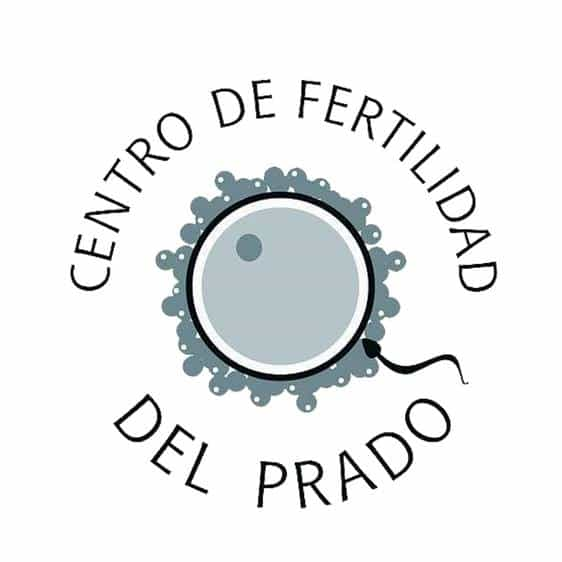Find Your Path to Parenthood: Best Countries for Surrogacy Explained

The journey to parenthood through surrogacy is a deeply personal one, often involving significant emotional, financial, and legal considerations. For many, finding the right country to pursue surrogacy is a crucial first step. There isn't a single "best" country, as the ideal choice depends on individual circumstances, including legal eligibility, budget, desired level of legal protection, and personal values regarding altruistic versus commercial arrangements. However, some countries consistently stand out due to their established legal frameworks, quality medical care, and supportive environments for intended parents. This guide aims to answer common questions and provide a clear overview of popular surrogacy destinations worldwide, helping you make an informed decision.
Which countries are legally supportive of surrogacy for international intended parents?
"The United States, Georgia, Colombia, and Mexico are among the countries known for having legal frameworks that support international surrogacy, though laws vary significantly by state or region within them."
The legal landscape for surrogacy is highly diverse globally. The United States is often considered the "gold standard" due to its clear, state-specific laws that protect all parties involved, including intended parents and surrogates. However, its high cost can be a barrier. Countries like Georgia have historically offered more affordable commercial surrogacy options with strong legal protections for intended parents, primarily for heterosexual married couples. Surrogacy in Mexico is also becoming increasingly viable, especially after a 2021 Supreme Court ruling that recognized surrogacy as a protected medical procedure, leading to more inclusive frameworks in certain states. Colombia and Mexico are emerging as popular destinations, particularly for LGBTQ+ individuals and single parents, with evolving legal frameworks that are becoming increasingly supportive. It's crucial to research the specific laws in each state or region within these countries, as they can differ substantially.
What is the cost of surrogacy in different countries?
"The cost of surrogacy varies widely, ranging from approximately $55,000 to $80,000 in countries like Mexico and Georgia, to $90,000 to $150,000+ in the United States and Canada."
The financial aspect is a significant factor in choosing a surrogacy destination. The United States generally has the highest costs due to comprehensive legal protections, high medical standards, and competitive surrogate compensation. For instance, a surrogacy journey in the US can easily exceed $150,000. In contrast, surrogacy in Georgia and surrogacy in Mexico offer more budget-friendly options. The average cost for surrogacy in Mexico typically ranges from $50,000 to $70,000 USD, though this can vary based on the clinic and specific services. For surrogacy in Georgia, costs usually fall between $38,000 and $70,000 USD. It's important to remember that these costs typically include medical procedures, legal fees, agency fees, and surrogate compensation, but can fluctuate based on individual circumstances, such as the need for egg or sperm donation, multiple IVF cycles, or specific insurance coverage.
Is altruistic or commercial surrogacy more common, and where?
"Commercial surrogacy, where the surrogate receives financial compensation beyond expenses, is common in the United States, Georgia, and Mexico, while altruistic surrogacy, which only covers the surrogate's expenses, is the norm in countries like Canada and the United Kingdom."
The distinction between altruistic and commercial surrogacy is fundamental. In commercial surrogacy, the surrogate is compensated for her time, effort, and the risks associated with pregnancy. This model is prevalent in many popular destinations like the USA, Georgia, and Mexico. Altruistic surrogacy, on the other hand, strictly limits payment to the surrogate's direct expenses related to the pregnancy, such as medical costs, lost wages, and maternity clothing. Canada and the UK are prominent examples of countries that only permit altruistic surrogacy. While altruistic arrangements are often seen as more ethically sound by some, they can lead to longer wait times due to a smaller pool of available surrogates.
What are the legal protections for intended parents in international surrogacy?
"Legal protections for intended parents vary significantly by country, with the United States offering some of the strongest protections, including pre-birth orders that establish parental rights before the baby's birth. Surrogacy in Georgia also provides immediate parental recognition for intended parents, while surrogacy in Mexico may require careful navigation due to varying state laws, though the Supreme Court ruling supports parental intent."
Ensuring legal parenthood is paramount in any surrogacy arrangement. The United States excels in this area, with many states providing robust legal frameworks that clearly define the rights and responsibilities of all parties. Pre-birth orders are often available, meaning the intended parents' names can be placed directly on the birth certificate. In Georgia, laws typically recognize the intended parents as the legal parents from birth, a key advantage for international clients seeking surrogacy in Georgia. For surrogacy in Mexico, while the 2021 Supreme Court ruling provides a strong foundation, the actual application of laws can vary by state. Some states are more explicitly supportive of intended parents' rights directly on the birth certificate, while others may require a post-birth adoption or parentage order. It is crucial to engage with experienced international surrogacy lawyers to navigate these complexities and ensure all legal bases are covered in any chosen country.
What are the ethical considerations in choosing a surrogacy destination?
"Ethical considerations in international surrogacy often revolve around preventing the exploitation of surrogates, ensuring fair compensation, protecting the rights of the child, and adhering to local laws and cultural norms. This is particularly relevant when considering surrogacy in Mexico and surrogacy in Georgia where cost differences can raise questions about surrogate well-being."
The ethical landscape of international surrogacy is complex. Concerns often arise regarding the potential for exploitation of women in less affluent countries, especially when significant financial disparities exist between intended parents and surrogates. It's vital to choose programs that prioritize the surrogate's well-being, provide adequate medical care, offer fair compensation, and ensure informed consent throughout the process. This is a critical factor whether pursuing surrogacy in Mexico or surrogacy in Georgia, where lower costs might tempt individuals to overlook due diligence. Additionally, the rights of the child born through surrogacy, including their right to citizenship and knowledge of their origins, are critical considerations. Reputable agencies and clinics adhere to strict ethical guidelines, ensuring transparent practices and safeguarding the interests of all parties.
How do success rates for surrogacy compare across different countries?
"Surrogacy success rates are more closely tied to the quality of the fertility clinic and the health of the egg/sperm/embryos used rather than the country itself, though countries with advanced medical facilities, such as the United States, tend to have high success rates. Clinics offering surrogacy in Mexico and surrogacy in Georgia also often boast high success rates due to modern equipment and experienced specialists."
While the country itself doesn't directly determine success rates, the quality of medical facilities and the expertise of fertility specialists within that country play a crucial role. The United States, with its cutting-edge reproductive technologies and highly skilled medical professionals, often boasts very high surrogacy success rates. Many clinics in countries like Georgia and Mexico also offer excellent medical care and comparable success rates, especially when using fresh donor eggs. The overall health of the intended parents' gametes or donor gametes, the surrogate's health, and the number of embryo transfers also significantly influence the likelihood of a successful pregnancy. When considering surrogacy in Mexico or surrogacy in Georgia, it's important to research specific clinic success rates and their medical accreditations.
What is the typical timeline for a surrogacy journey in different countries?
"A surrogacy journey can take anywhere from 12 to 24 months from the initial consultation to the baby's birth, with variations depending on surrogate availability, legal processes, and the number of IVF cycles needed in different countries. This timeline is broadly consistent whether pursuing surrogacy in Mexico or surrogacy in Georgia."
The timeline for surrogacy can vary based on several factors unique to each country. Finding a suitable surrogate is often the most time-consuming part of the process, and wait times can differ significantly. For instance, in countries with high demand or a limited pool of altruistic surrogates like Canada, the wait can be longer. Once a surrogate is matched, the medical procedures, including IVF and embryo transfer, and the pregnancy itself, follow a generally predictable nine-month course. Legal processes, such as securing court orders or birth certificates, can also add to the overall timeline. Generally, a full surrogacy journey could range from 12 to 24 months, or even longer in some cases, whether pursuing surrogacy in Mexico or surrogacy in Georgia.
Can same-sex couples pursue surrogacy in all countries?
"No, not all countries permit surrogacy for same-sex couples; the United States, Colombia, Mexico (in some states), and Canada are generally considered LGBTQ+-friendly destinations for surrogacy, while others like Georgia may restrict it to heterosexual married couples."
The legal landscape for same-sex surrogacy is evolving, but many countries still have restrictions. The United States is widely recognized as one of the most inclusive surrogacy destinations for same-sex couples, with many states having explicit laws that support their right to parenthood through surrogacy. Surrogacy in Mexico, particularly after the 2021 Supreme Court ruling, has become increasingly accessible for LGBTQ+ intended parents in various states, making it a more inclusive option. However, countries like Georgia traditionally limit surrogacy to heterosexual married couples, which is an important consideration for same-sex couples looking into surrogacy in Georgia.
What support services are typically offered by surrogacy agencies in different countries?
"Reputable surrogacy agencies typically offer comprehensive support services including surrogate matching, legal coordination, medical appointments scheduling, financial management, psychological support, and travel assistance for intended parents. These services are common for surrogacy in Mexico and surrogacy in Georgia."
A professional surrogacy agency plays a vital role in guiding intended parents through the complex process. These agencies often provide a wide range of services designed to streamline the surrogacy journey. This usually includes helping intended parents find a suitable surrogate, coordinating all medical appointments and procedures with fertility clinics, managing the financial aspects of the arrangement, and providing legal referrals to ensure proper contracts are in place. Many agencies also offer psychological support for both intended parents and surrogates, as well as assistance with travel logistics for international clients. The level of support can vary, so it's important to understand the full scope of services offered by any agency you consider for surrogacy in Mexico or surrogacy in Georgia.
What are the risks associated with international surrogacy?
"Risks associated with international surrogacy can include legal complexities and changes in laws, difficulties with citizenship and exit documents for the baby, potential for exploitation of surrogates, and unexpected costs, underscoring the need for thorough research and legal counsel. This is particularly true for surrogacy in Mexico due to state-by-state variations and for surrogacy in Georgia where geopolitical factors can be a concern."
While international surrogacy offers a path to parenthood for many, it comes with specific risks. Legal changes in the surrogate's country or challenges in obtaining citizenship and travel documents for the baby can create significant delays or complications upon returning home. For surrogacy in Mexico, the varying legal landscapes between states can pose challenges, requiring diligent legal navigation. For surrogacy in Georgia, while the legal framework is generally clear, geopolitical considerations in the region can introduce an element of risk. There's also the ethical concern of potential exploitation of surrogates, particularly in countries with weaker regulatory frameworks. Unforeseen medical complications or legal disputes can lead to increased costs beyond the initial estimates. To mitigate these risks, it is essential to choose a reputable agency, work with experienced legal professionals specializing in international surrogacy law, and thoroughly understand the laws of both the surrogate's country and your home country.
How important is the cultural context when choosing a surrogacy country?
"The cultural context of a surrogacy destination is highly important as it influences the surrogate's experience, the local community's perception of surrogacy, and can impact the emotional aspects of the journey for both intended parents and surrogates. This is a factor to consider for surrogacy in Mexico and surrogacy in Georgia."
The cultural context plays a significant role in the overall surrogacy experience. Understanding and respecting the cultural norms of the surrogate's country can foster a more positive and respectful relationship between intended parents and the surrogate. In some cultures, there might be varying degrees of stigma or acceptance around surrogacy, which can affect the surrogate's social support system. Additionally, cultural differences can influence communication styles, expectations, and the approach to medical care. Choosing a destination where you feel comfortable with the cultural environment and where surrogates are treated with dignity and respect is crucial for an ethical and fulfilling surrogacy journey, whether you choose surrogacy in Mexico or surrogacy in Georgia.
What should I consider if I plan to use my own egg or sperm for surrogacy?
"If you plan to use your own egg or sperm for surrogacy, you should consider the quality of fertility clinics, legal requirements for genetic connection to the child, and the logistics of transporting genetic material or traveling for procedures in the chosen country, which are relevant for surrogacy in Mexico and surrogacy in Georgia."
Using your own genetic material in a surrogacy arrangement adds specific considerations. First, ensure that the fertility clinics in your chosen country are equipped with the advanced reproductive technologies necessary for successful IVF with your own gametes. Many countries have legal stipulations regarding genetic links, often requiring at least one intended parent to be genetically related to the child. You'll also need to factor in the logistics and costs of transporting frozen eggs, sperm, or embryos, or the travel required for you to undergo egg retrieval or sperm donation procedures in the surrogacy destination. This also includes understanding any legal or customs regulations for transporting biological materials internationally, which is a factor for surrogacy in Mexico and surrogacy in Georgia.
How do I ensure the surrogate is well-cared for throughout the process?
"To ensure a surrogate is well-cared for, it is essential to choose a reputable surrogacy agency or clinic that provides comprehensive medical care, psychological support, fair compensation, and regular communication channels throughout the surrogacy journey. This applies universally, including for surrogacy in Mexico and surrogacy in Georgia."
Ensuring the well-being of the surrogate is a paramount ethical responsibility for intended parents. A reputable surrogacy program will prioritize the surrogate's health and comfort. This typically includes providing access to high-quality medical care throughout pregnancy, including prenatal and postnatal care. Psychological support and counseling should also be available to help the surrogate navigate the emotional aspects of the process. Fair and transparent compensation that covers all expenses and acknowledges her invaluable contribution is crucial. Furthermore, maintaining open and respectful communication channels, whether directly or through an agency, helps foster a positive relationship and ensures the surrogate's needs are met for any surrogacy journey, whether surrogacy in Mexico or surrogacy in Georgia.
What happens if there are medical complications during the surrogacy pregnancy?
"If medical complications arise during a surrogacy pregnancy, a reputable surrogacy agency or clinic will have protocols in place for immediate and comprehensive medical intervention, clear communication with intended parents, and established agreements for handling additional costs. This is a vital consideration for surrogacy in Mexico and surrogacy in Georgia."
Medical complications, though rare, are a possibility in any pregnancy. In a surrogacy arrangement, it's vital to have a clear understanding of how such situations will be handled. Reputable fertility clinics and surrogacy agencies will have established protocols for managing unforeseen medical issues, including access to emergency medical care, specialized treatments, and experienced obstetricians. The surrogacy contract should ideally outline the responsibilities and financial implications for any additional medical costs incurred due to complications. Transparent and prompt communication between the medical team, the surrogate, and the intended parents is essential to ensure the best possible outcome for both the surrogate and the baby, regardless of whether it's surrogacy in Mexico or surrogacy in Georgia.
What are the requirements for intended parents for surrogacy in various countries?
"Requirements for intended parents for surrogacy vary but commonly include being a married heterosexual couple (in some countries like Georgia), demonstrating a medical need for surrogacy, and undergoing psychological and legal screenings. Surrogacy in Mexico tends to be more inclusive regarding marital status and sexual orientation in certain states."
The eligibility criteria for intended parents can differ significantly from one surrogacy destination to another. Many countries, particularly in Eastern Europe like Georgia, traditionally require intended parents to be a married heterosexual couple and demonstrate a medical necessity for surrogacy, such as infertility. In contrast, the United States offers more flexibility, with surrogacy often available to single individuals, unmarried couples, and same-sex couples, regardless of marital status. Surrogacy in Mexico, following the 2021 Supreme Court ruling, has also become more accessible to diverse family structures, though this can vary by state. Regardless of the country, intended parents typically undergo psychological assessments to ensure they are prepared for the emotional journey of surrogacy and legal screenings to verify their suitability and commitment to the process.
How does the birth certificate process work in international surrogacy?
"The birth certificate process in international surrogacy varies significantly by country; in some, the intended parents are named on the initial birth certificate directly, as is generally the case for surrogacy in Georgia. For surrogacy in Mexico, while the Supreme Court ruling supports parental intent, state-level implementation may still require a post-birth court order or adoption process to transfer parental rights."
The procedure for obtaining a birth certificate and establishing legal parentage is a critical step in international surrogacy. In countries with explicit surrogacy laws that protect intended parents, such as certain states in the US and Georgia, the names of the intended parents are often placed directly on the baby's birth certificate at birth. This provides immediate legal recognition of their parental rights for surrogacy in Georgia. However, in countries where surrogacy laws are less developed or more restrictive, such as in some states even for surrogacy in Mexico, the surrogate mother may initially be listed as the legal mother. In such cases, intended parents would need to apply for a post-birth court order, a parentage order, or even undergo a domestic or international adoption process to officially become the legal parents in their home country. This is why thorough legal counsel before starting the surrogacy journey is so vital.
Ready to explore your options for surrogacy and other healthcare solutions? Visit PlacidWay to connect with leading clinics and agencies worldwide, offering transparent information and support for your family-building journey.


.png)


-Package-at-Advanced-Fertility-Center-Cancun,-Cancun,-Mexico.png)











Share this listing